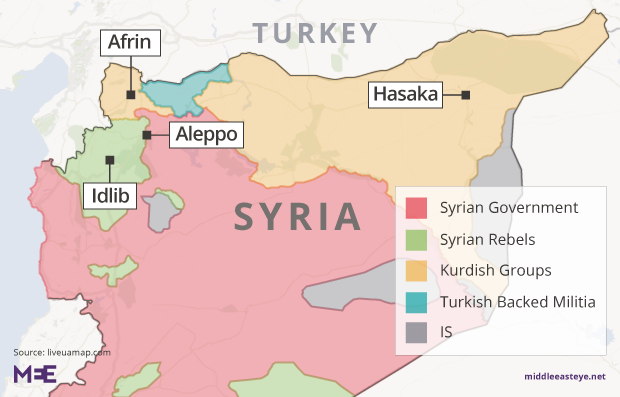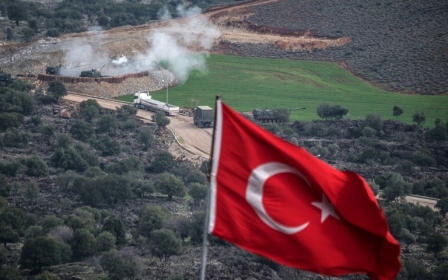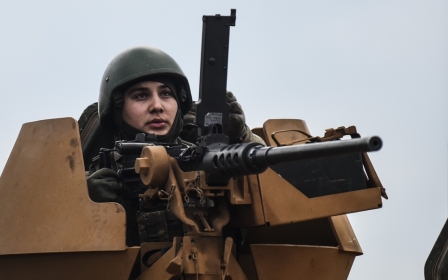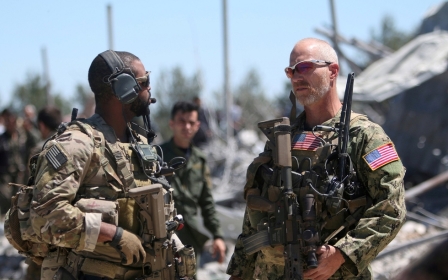US must stop using Syria as a pawn
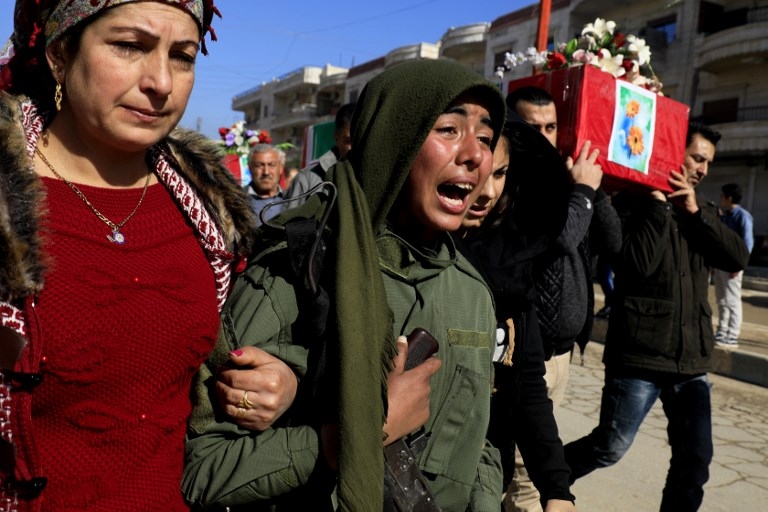
Coupled with Turkey's invasion of northern Syria, Washington's recent announcement that the US will keep up to 2,000 troops in Syria indefinitely marks another turn for the worse in the country's seven-year conflict. It also highlights the incoherence and recklessness of US policy.
One stated reason for keeping US special forces in Syria is that the US wants to prevent a resurgence of the Islamic State (IS). Another is that the US needs to block Iran's penetration of Syria. Both arguments are flawed.
The fall of IS
The IS "caliphate" has been destroyed and most of its leaders are dead. Preventing the group's revival, at least in terms of territorial control, depends more on what happens in Iraq than in Syria.
If Baghdad adopts inclusive and non-sectarian policies and does a decent job of reconstructing the Sunni-majority cities that IS once occupied, the armed group will not be able to regain much popular support. That is a job for Iraqi politicians and community leaders, not Syrians.
As for Iran's influence in Syria, it arose as a result of the civil war and the threat posed to Bashar al-Assad’s rule by IS and other opposition forces. Before the war, in the decades when Syria was a powerful and normally functioning state, Iran's role and authority in Syria were minimal.
Instead of accepting the reality that the Assad government has regained control of Syria's heartland - and that most Syrians, including those who once hoped to see Assad's departure, now just want the war to end - the US is keeping the military option on the table
But when Assad came under severe pressure, Iran played a vital part in restoring his government's control over most of Syria’s cities. If IS was installed in Damascus, it would pose a direct threat to Iran.
Having eliminated that danger, the Iranians will expect some political reward - but the best way to enhance the independence of Damascus from Tehran and to minimise the need for Iranian forces to remain in Syria is for all parties to try to shorten the civil war and rebuild the country's stability.
Threatening to keep US forces in Syria is totally counterproductive and a violation of international law. The US has not been invited by the Syrian government, nor is there any UN resolution that gives it international legality.
Maintaining military pressure
Beyond the stated reasons, the presence of US forces in Syria now that IS has been defeated seems designed to maintain military pressure on the Syrian army by implying the US could at some point increase its commitment and try to topple Assad.
It also acts as encouragement to the non-IS opposition forces to keep up their futile military struggle.
Instead of accepting the reality that the Assad government has regained control of Syria's heartland - and that most Syrians, including those who once hoped to see Assad's departure, now just want the war to end - the US is keeping the military option on the table.
This only encourages opposition politicians at the Geneva talks to continue rejecting compromises and parroting their futile demands for Assad to agree to resign before any new constitution and elections are negotiated.
Washington's attitude towards the Syrian Kurdish forces of the People's Protection Units (YPG) who helped to drive IS out of Raqqa is equally incoherent. On the one hand, the US supports their continued operations as a local military force in northeastern Syria.
On the other hand, it has done little, beyond a phone call from US President Donald Trump to Turkish President Recep Tayyip Erdogan, to condemn Turkey's invasion of northern Syria, which is designed purely to confront and expel the YPG. Turkey is already targeting Afrin and has announced its intent to go on to Manbij, after which it may push further towards Kobane.
The YPG's attitude towards the Assad government is ambiguous. Verbally, its leaders criticise Assad, and there have been occasional clashes with Syrian government forces - but for the most part, the two sides observe a kind of unsigned non-aggression pact.
The question of Kurdish autonomy
The Syrian foreign minister, Walid al-Muallem, has hinted that Damascus would accept local autonomy for Syria's Kurdish northeast. Russia has also come out in favour of a decentralised Syria with Kurdish autonomy.
The best solution is for the US and Russia to make a joint statement endorsing the idea of a loose federation and ensuring that a Syrian Kurdish delegation takes part in the UN-led Geneva process.
Rather than pursuing a costly military option, Erdogan needs to be persuaded to accept a similar solution of autonomy for southeastern Turkey, where the Kurdistan Workers' Party (PKK) insurgency originated.
Turkish officials spent two years negotiating with the PKK's imprisoned leader, Abdullah Ocalan, until Erdogan stopped the process in 2015 in a bid to win votes from Turkey's nationalists.
Now that he has been securely re-elected, he should pull his troops out of Syria and revive peace talks with the PKK.
Russia should give him a message along these lines. Otherwise, Russia's Syria tactics will be as tainted with incoherence as US tactics are. The Kremlin should resist the temptation to drive a wedge through NATO.
Instead of giving a tacit green light to Erdogan to invade northern Syria, Moscow ought to condemn his actions and urge him to withdraw.
Extreme interventionism
Turkey has no legitimate military role to play in Syria, except in relation to blocking the arrival of armed fighters across its border. For the first few years of the civil war, Turkey did the opposite: It facilitated the passage of money, arms and fighters for IS and other rebel groups to confront the Syrian army or move through Syria into Iraq.
Turkey later seemed to change tack and join the anti-IS alliance. Now, it has gone back to a more extreme version of its original interventionist strategy by invading Syria directly and training Syrian opposition fighters, many of them Turkmen, to attack the Kurds.
After seven years of war, the Syria conflict had seemed to be winding down, offering a chance for the millions of displaced civilians to return home. Several hundred thousand people of various ethnic minorities who had fled other cities had taken refuge in Afrin, which had been an oasis of peace.
Now Turkey has made them fearful again.
The US and Russia should stop using Syria as a pawn in a game of mutual point-scoring, and instead jointly use their influence to get Turkey to withdraw.
- Jonathan Steele is a veteran foreign correspondent and author of widely acclaimed studies of international relations. He was the Guardian's bureau chief in Washington in the late 1970s, and its Moscow bureau chief during the collapse of communism. He has written books on Iraq, Afghanistan, Russia, South Africa and Germany, including Defeat: Why America and Britain Lost Iraq (I.B.Tauris 2008) and Ghosts of Afghanistan: the Haunted Battleground (Portobello Books 2011).
The views expressed in this article belong to the author and do not necessarily reflect the editorial policy of Middle East Eye.
Photo: Syrian Kurds mourn during a funeral in the town of Afrin on 29 January 2018 of slain civilians and fighters from the Syrian Kurdish People's Protection Units (AFP)
This article is available in French on Middle East Eye French edition.
Middle East Eye propose une couverture et une analyse indépendantes et incomparables du Moyen-Orient, de l’Afrique du Nord et d’autres régions du monde. Pour en savoir plus sur la reprise de ce contenu et les frais qui s’appliquent, veuillez remplir ce formulaire [en anglais]. Pour en savoir plus sur MEE, cliquez ici [en anglais].



